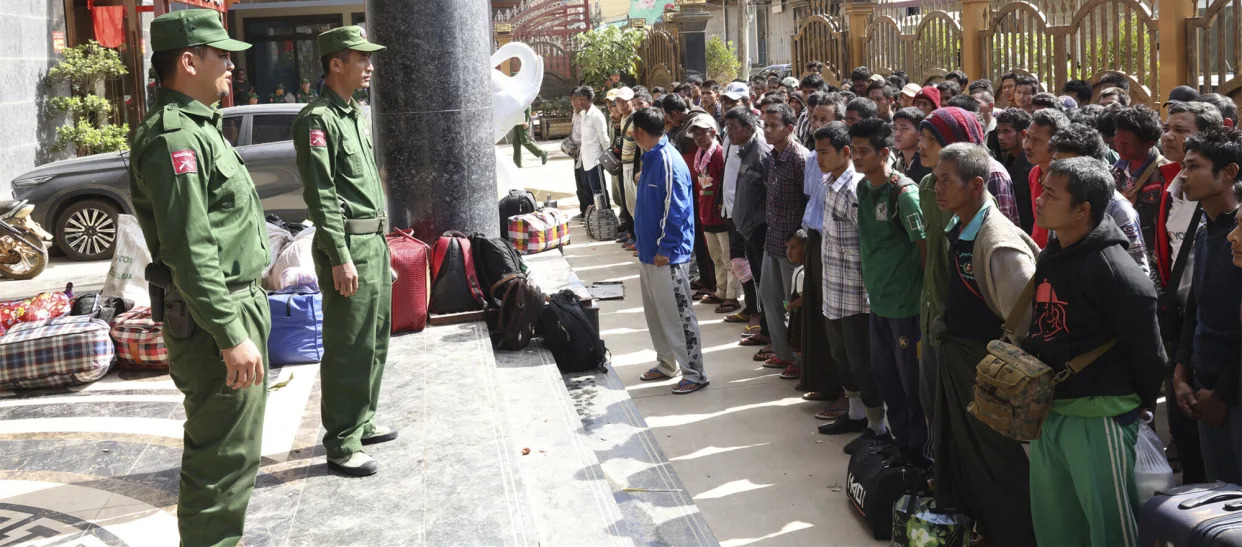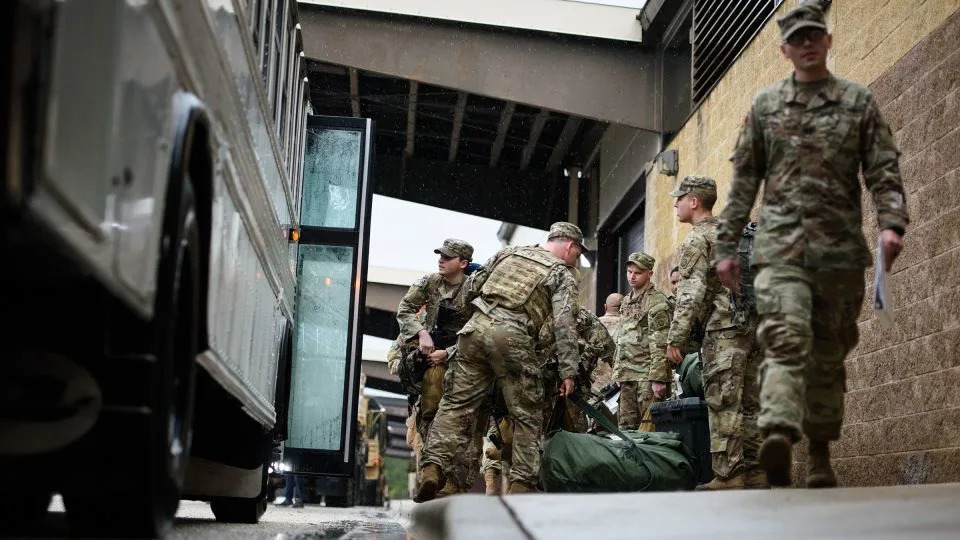Agence France-Presse
May 31, 2022

This illustration photo shows the Twitter page of Daniel Defense displayed on a mobile phone in Arlington, Virginia, US on May 25, 2022. © Olivier Douliery, AFP
The perpetrator of the massacre in Uvalde, Texas in which 19 children and two adults lost their lives on May 24 – the worst US school shooting in a decade – used a semi-automatic weapon manufactured by Daniel Defense, one of the most aggressive marketers of assault weapons to ordinary Americans, notably young adults.
A week after the Uvalde school shooting, Daniel Defense shied away from attending the National Rifle Association convention.
“Daniel Defense is not attending the NRA meeting due to the horrifying tragedy in Uvalde, Texas, where one of our products was criminally misused,” the company’s vice president of marketing Steve Reed said in a statement. “We believe this week is not the appropriate time to be promoting our products in Texas at the NRA meeting.”
Indeed, the killer had acquired an AR-15 DDM4 V7 – Daniel Defense’s flagship semi-automatic rifle – to “celebrate” his 18th birthday. A few days later, he entered Robb Elementary School and carried out the massacre that revulsed the world, and shocked the US, even if it was the country's 27th school shooting in 2022.
“We are deeply saddened by the tragic events in Texas this week,” read a statement on Daniel Defense’s website posted in the wake of the shooting. “Our thoughts and prayers go out to the families and community devastated by this evil act.”
Daniel Defense also took the opportunity to remove a message – on its website’s home page until the day after the Uvalde massacre – promoting a lottery with a prize of $15,000 to spend on guns or ammunition.
This kind of advertising is typical of Daniel Defense’s aggressive promotional approach. “Daniel Defense is basically the poster child of this egregious, aggressive marketing,” Ryan Busse, a former executive at the gun manufacturer Kimber, now a prominent critic of the US gun industry, told The New York Times.
One particular image – which Daniel Defense posted on Twitter ten days before the Uvalde massacre – is emblematic of its outré marketing style. It shows a toddler clutching the same type of semi-automatic rifle the Uvalde shooter used, with the line: “Train up a child in the way he should go, and when he is old, he will not depart from it.”
An online backlash followed the discovery of this tweet after the Uvalde massacre – prompting Daniel Defense to make its Twitter account private and limit people’s ability to comment on its Facebook page.
Trump fan CEO
This is not the first time, however, that Daniel Defense has received an avalanche of criticism for manufacturing weapons subsequently used in mass shootings. Four of its semi-automatic rifles were part of the arsenal of the shooter who killed 58 people in Las Vegas in 2017. At the time, Daniel Defense sent its “thoughts and prayers” to victims’ families – but did not change anything about its business practices.
Marty Daniel, the company’s CEO and founder, only expressed regret once – after 27 people were killed in a shooting at a Baptist church in Texas in 2017. Daniel endorsed slightly tightening gun control laws in the aftermath of this massacre, as did the NRA. But he changed his mind a few days later.
Daniel Defense’s website portrays the company’s CEO, a Donald Trump supporter and big donor to Republican candidates, as a jack of all trades who sold windows and fireplaces before finding his métier in gun manufacturing.
It also states that Daniel developed a love for firearms after failing to make his mark in golf. “Daniel Defense got its start because Marty’s golf game sucked,” the website reads. “He would spend most of his free time unwinding on the golf course, until the day a friend invited him to shoot his AR.”
Ever-widening audience
Marty Daniel founded the company in 2000 and won his first contract for the US Army two years later. His company has had more than 100 Pentagon contracts since then.
But Daniel Defense has long been keen to market its wares to private US citizens – courting the general public in its promotional efforts since 2004, upon the expiry of the ban on selling new assault weapons for civilian use that was signed into law by then president Bill Clinton in 1994.
Since then, the company has been keen to convince American gun enthusiasts that they are entitled to the same AR-15s as the soldiers it has equipped over the past two decades – making this point explicit in an advert it unsuccessfully sought to air in local media markets during the Super Bowl in 2014.
Yet Daniel Defense’s marketing ploys have reached an ever-widening audience. The firm is now one of the US’s 25 largest firearms sellers in a crowded market for its niche, with more than 500 companies making semi-automatic rifles since 2004.
The AR-15 DDM4 V7 used by the Uvalde shooter is one of 19 models Daniel Defense makes. These are often marketed at young people. A recent advertising clip shows a teenager practicing shooting, and the company has repeatedly used clips from video games like "Call of Duty" and films such as the "Star Wars" franchise to appeal to fans.
A more famous gun manufacturer, Remington, used the same tricks to sell its weapons to young people. That cost Remington dearly when families of the victims of the 2012 massacre at Sandy Hook Elementary School in Newtown, Connecticut were awarded a payout of $72 million in a lawsuit for irresponsible marketing, after the shooter had used an AR-15 produced by one of the company’s subsidiaries.
This article was translated from the original in French.




















